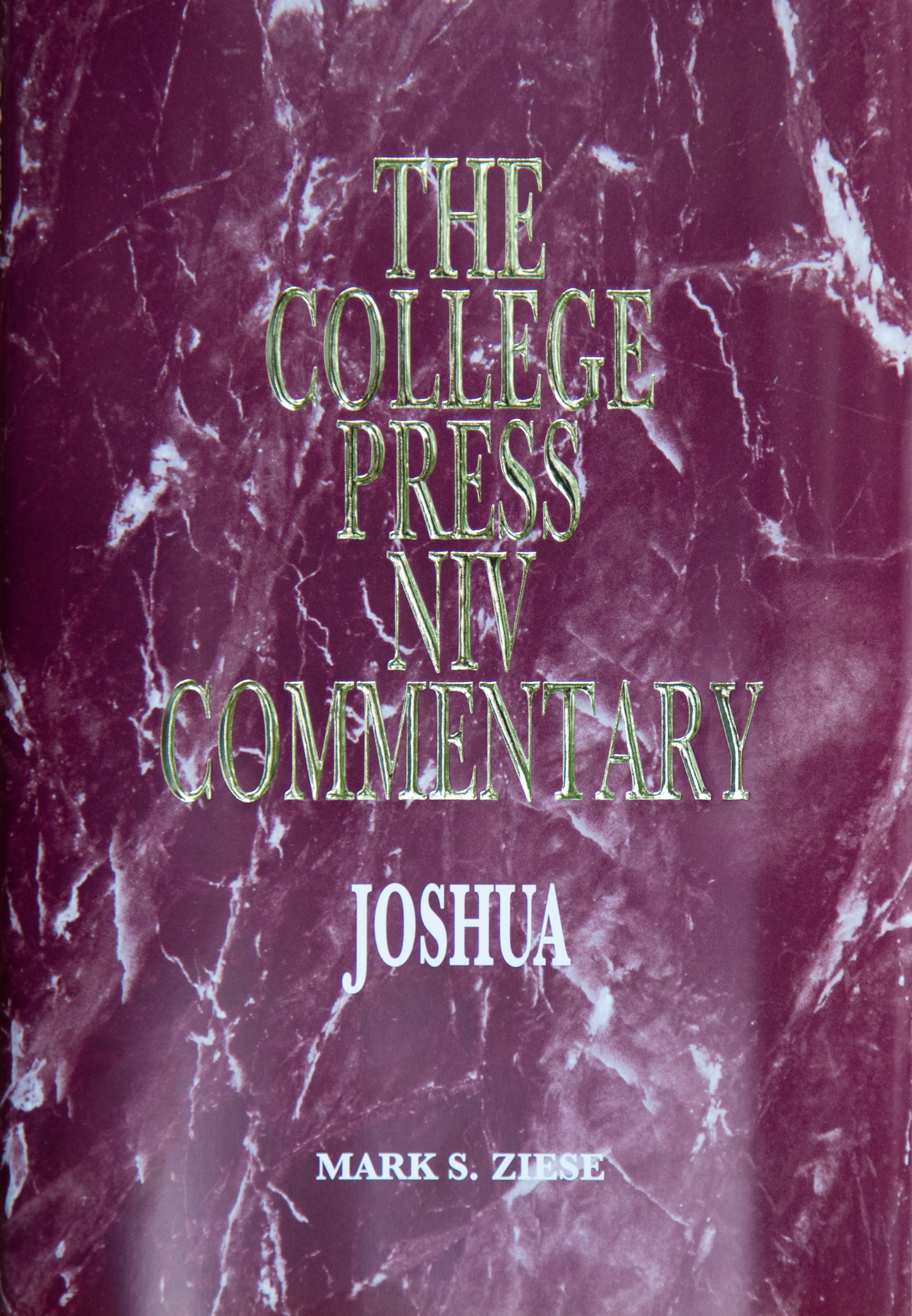CollegePress
Joshua - NIV
Joshua - NIV
Couldn't load pickup availability
College Press NIV Commentary Series is formatted with a verse-by-verse explanation of the text. It was developed for both the scholar and the average Bible student. The College Press NIV Commentary Series is the only full commentary set in print from the Restoration Movement. Each volume (41 volumes for the Old & New Testament) contains the following helpful features:
- Biblically sound exegesis
- Clear exposition
- Objective approach
- Concise introduction
- New International Version of the Bible
- Key word translation
- Easy to use design format
- Practical footnotes
- And more!
Overview
The Law of Moses (Torah) asks and answers questions essential to the reading of Scripture. Some of these questions are launched upwards: Who is Yahweh? What are his credentials, promises, and expectations? Can he be trusted? Other questions of Torah are launched outwardly: Who is this Moses? What are his credentials? Can he be regarded as a reliable guide? Finally, questions of Torah are launched inwardly: What does it mean to be the people of God? How are such people identified? Where do they come from? Where do they go? Far more than a mishmash of short stories, endless genealogies, and odd rules; Torah makes specific claims about the nature of Yahweh, Moses, and the people of God. Like a living document, it must be remembered, interpreted, and applied afresh by each generation
The book of Joshua attempts to do just this. Scripturally, it connects onto the end of Torah, offering the story of the first generation to venture beyond the scraps of Mt. Nebo where the tracks of Moses stop abruptly, then disappear. For the Exodus generation, and indeed for Moses himself, a visit to this land of promise could only be appreciated vicariously, unless, of course, one were to include a deep-down ache for a place to call home. For the Eisodos generation, on the other hand, the promise would finally become reality. To fully appreciate their position, though, the words of Torah and its stories of men whose feet trod this land centuries earlier must be remembered. By the late second millennium B.C., the trail of these early walkers is already old, but not yet cold; Torah retrieves the pathways of Abraham, Isaac, and Jacob.
Beyond the task of remembering, the text of Joshua will also interpret Torah. Moses is clear about the rules of Canaanite engagement, the division of land among the tribes, the establishment of cities of refuge, and a host of other issues. These instructions must be relocated and reconsidered in light of contemporary events. Given the twists of real life, the practice of law seldom hinges on a single point (oh, if only it were so easy!); more often it flexes longways through a whole process of assessing variables. Put differently, Torah is uncompromising with regard to Canaan's residents. So how, then, should this code be read in the case of Rahab, the alien, or the Gibeonites? Similarly, Torah is clear that once God's people are in the land, Yahweh will select one place of sacrifice and dwelling. How, then, should the "imposing altar" of the Transjordan tribes be understood? Clearly, one cannot read Joshua the text - much less Joshua the man - without sensing the challenge of interpreting a living document. There are no comfortable precedents here. Moses laid it down in the past, but Joshua must live it out in the present (taken from the introduction).
Joshua has 402 pages.
ISBN 978-0-89900-880-6
WEB-880
Joshua Preface
Joshua Introduction
Joshua Outline
Joshua Jordan River
About the Author
Mark S. Ziese is Professor of Old Testament, Cincinnati Christian University. Dr. Ziese received his BA from Ozark Christian College; MA from Cincinnati Christian University; MA from Hebrew Union College; and his PhD from Andrews University.
About the Editors
Dr. Paul J. Kissling is Professor of Old Testament and Director of Research for TCM International’s 25 years as a minister and elder in Christian Churches in Michigan, Illinois, and England. Paul received the bachelor’s degree from Great Lakes Christian College, the MDiv from Lincoln Christian Seminary, the ThM from Trinity Evangelical Divinity School, and the PhD from the University of Sheffield (England). Paul has taught and preached in more than 20 countries and is the author of several books and articles in both scholarly and popular publications.
Dr. Terry Briley is an Associate Professor of Bible at Lipscomb University, Nashville, Tennessee, since 1986. He received the BA from Lipscomb University, then a MPhil and PhD from Hebrew Union College, Cincinnati, Ohio. In addition to teaching at Lipscomb University, he is the Senior Minister at Natchez Trace Church of Christ and leads annual summer mission’s trips to Brazil.
Share


